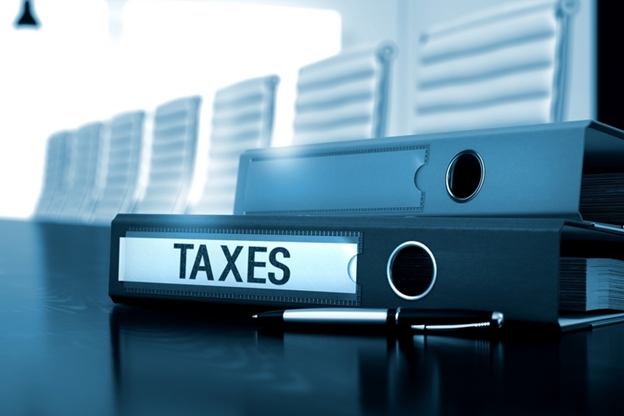The Top 7 Canadian Taxation Myths Busted

Are you confused about the rules of Canadian taxation? With so much misinformation out there, it can be difficult to separate fact from fiction. To make things easier, we’ve created this blog post to help you understand the facts and dispel some of the most common myths associated with Canadian taxation. Read on to learn the truth behind the top seven Canadian taxation myths and get a clearer picture of the country’s taxation system.
1) You don’t have to pay taxes if you don’t make enough money
One of the most common myths about Canadian taxation is that you don’t have to pay taxes if you don’t make enough money. This is false. In fact, no matter how much money you make or how little money you make, everyone has to pay taxes in Canada.
If you’re a low-income earner, you may be eligible for certain tax credits and deductions that can reduce the amount of tax you owe. However, you still need to file your taxes every year. Otherwise, you could face penalties and interest charges from the Canada Revenue Agency (CRA). It’s always best to speak to a personal tax accountant or financial advisor to find out what kind of tax deductions and credits you may be eligible for. They can help you understand the different types of taxes, such as income taxes, property taxes, sales taxes, and more, and help you file your taxes correctly.
2) Only Canadians who own property have to pay taxes
This is a common misconception about Canadian taxation. While property ownership does come with its own set of taxes, it is not the only type of tax Canadians have to pay. All Canadians have to pay taxes on income and capital gains, no matter what type of property they own. This includes wages, salaries, and any other income they may earn, such as investment or rental income. In addition, there are other types of taxes that Canadians may be subject to depending on their situation, such as GST/HST, payroll deductions, and provincial sales tax. To make sure you’re up-to-date on all the taxes that you should be paying, it’s best to consult a personal tax accountant who can provide you with accurate advice.
3) You only have to pay taxes on income from a job
This is a common misconception about Canadian taxation. It is true that income from employment is taxable, but there are other sources of income that can also be subject to taxation. These can include investments, capital gains from selling assets, self-employment income, alimony payments, and more. It’s important to understand all the different types of income you may receive and the potential tax liabilities associated with them. It’s best to consult with a personal tax accountant if you’re unsure about the tax implications of your income.
4) All of your income is taxed at the same rate
It is a common misconception that all of your income is taxed at the same rate. In fact, Canada has several different tax rates for different types of income. Investment income, such as dividends and capital gains, are taxed at a lower rate than regular employment income. Additionally, the amount of taxes you pay can vary depending on which province or territory you reside in. Therefore, it is important to consult with a personal tax accountant to understand which tax rate applies to your particular circumstances. With the help of a personal tax accountant, you can be sure to accurately calculate your taxes owed and maximize your deductions.
5) You can avoid paying taxes by moving to another province
This is a common misconception that can leave many people with serious tax troubles. Moving to another province or territory won’t allow you to avoid paying taxes in Canada. In fact, each province and territory has its own set of rules and regulations regarding taxation. You may even have to pay taxes on income earned in other provinces or territories.
That’s why it’s important to speak with a personal tax accountant about any potential tax implications of moving. A qualified professional can help you understand the taxation laws in each province or territory and determine the best plan for you. Additionally, they can advise you on how to file your taxes and how to manage your income to maximize your deductions and credits.
Ultimately, moving to another province isn’t an effective way to reduce your tax burden. It’s best to work with a qualified tax professional to ensure you are properly filing your taxes and taking advantage of available deductions.
6) You can avoid paying taxes by moving to another country
This is a myth that some people believe can help them avoid paying taxes, but it’s not true. Moving to another country won’t get you out of paying taxes in Canada. No matter where you live, you are still required to report any income you earn to the Canadian government. This includes wages, investments, and even gifts or inheritances.
The only way to avoid paying taxes on foreign income is to establish permanent residence in another country and to be considered a tax resident in that country. Depending on the country, there may also be tax treaties in place that allow you to minimize your Canadian tax liability.
Before making the decision to move to another country for tax reasons, it’s important to consult with a personal tax accountant who is familiar with both countries’ tax systems and laws. Your accountant can help you determine if you will save more money by living and paying taxes in one country or the other.
7) You don’t have to pay taxes on gifts or inheritances
Many people mistakenly believe that they don’t have to pay taxes on gifts or inheritances they receive. This is not the case. Generally, any money or property you receive from an inheritance or as a gift is subject to taxes. Depending on the size of the gift, you may be required to file a gift tax return with the Canada Revenue Agency (CRA). It is important to understand how to properly report gifts and inheritances so that you can ensure your taxes are correctly filed.
The taxation of gifts and inheritances can be complicated and can vary depending on the province you live in. To make sure you are filing correctly, it is a good idea to consult a personal tax accountant who can help you determine which taxes apply to your situation and ensure you are following all of the CRA’s regulations.
Gift taxes also apply when you give money or property to someone else. Depending on the size of the gift, you may be required to file a gift tax return with the CRA. There are some exceptions to this rule, such as when the gift is for educational or medical expenses for another person or if the gift is given to a registered charity. It is important to understand the tax laws surrounding giving and receiving gifts and to consult with a qualified tax professional if needed. Overall, gifts and inheritances are subject to taxation, so it is important to understand your obligations to the CRA and make sure that any taxes due are paid. A personal tax accountant can provide valuable guidance in this regard and help you ensure that you are compliant with all of the necessary regulations.



